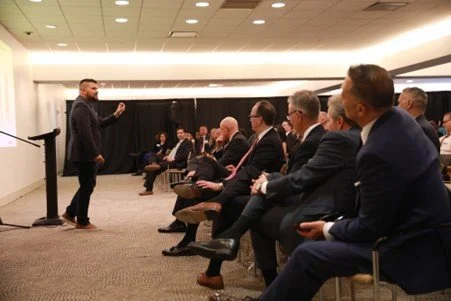As a neurodiversity coach, my aim is to advocate for greater inclusivity and support for individuals on the Autism Spectrum in the workplace.
Managing your personal finances (building a habit with a dose of self-compassion) whilst … starting a coaching business/service as your first career (post-graduation) by Kim Stephenson (Part 5 of 5)
What to do when the plan goes awry. This is the last in the 5-part series looking at how Sarah, a recent postgraduate who’s in her mid-20’s, with just over £40,000 student debt, learned to handle her personal finances. She’s determined to start her own business as a coach because it’s her passion and earns an inconsistent salary throughout the year. She came to me, for financial coaching, as she wanted to achieve her goals.
Managing your personal finances (practical plans and goals) whilst … starting a coaching business/service as your first career (post-graduation) by Kim Stephenson (Part 4 of 5)
The first three parts of this blog looked at what Sarah wanted her money to do, her priorities (the heart bit) and some of the reality of finance (head). In this 4th part, we’ll look at the “hands” of the process, taking the information about the person, their dreams and their realities, and putting those into concrete plans for their finances.
Managing your personal finances (connecting the heart and head to money) whilst … starting a coaching business/service as your first career (post-graduation) by Kim Stephenson (Part 3 of 5)
In Parts 1 to 3 I introduced Sarah and her situation, looked at how we unpacked the details of Sarah’s dreams and gave them more structure and how these linked to her current life situation and beliefs. In this 3rd part of the five-part series I’ll look in more detail at realities of her finances, applying the “head”, a more objective approach to the “heart” of her dreams.
How to succeed in a Merger - A humane Approach by Aubrey Rebello
A lot of the principles I apply is drawn from my experiences as a CEO and shapes the way I approach coaching with my clients. Depending on the type of challenges Clients face I may draw upon them to share as a perspective to enable Clients to find their own solutions; because such information, experience and access is often limited and specific.
Managing your personal finances (connecting heart to money) whilst … starting a coaching business/service as your first career (post-graduation) by Kim Stephenson (Part 2 of 5)
In Part 2, I’ll look at how we unpacked the details of her rather vague dreams and gave them more structure. Then we’ll move to how this relates to her current life situation. This is the ‘heart’ of my approach, and in the remaining parts of my 5 part series, I’ll focus on the ‘head’ and the ‘hands’ of making personal finance for Sarah (and others like her) fit into their current realities.
Managing your personal finances (what is it) whilst … starting a coaching business/service as your first career (post-graduation) by Kim Stephenson (Part 1 of 5)
“Why don’t you do an article for coaches on financial wellbeing?” “What, on providing it for themselves, or adding a string to their bow with clients?” “Why not both?”
That’s the origin of this series. In Part 1 I introduce Sarah, a recent graduate with both a Masters and a Bachelors, who was exploring for the first time what is personal finance, how this relates to her situation and her dreams for the future.
Discussion trumps Presentation by Aubrey Rebello
Most Coaches & Business Consultants are keen to pass on their knowledge & experience through Power point Presentations (PPT) or slide decks. These Presentations are often good, but do not entirely capture the issues plaguing the Team that need to be addressed. Unfortunately, presentations cannot be the Swiss Army knife of communication.
Tool for measuring and improving trust in a Team by Pradip Shroff
I was relaxing on my holidays in the USA. On a sunny morning, Mohan, CEO of Grow Investment, called me. I completed a coaching assignment with Mohan about a year ago. In our conversation together, Mohan mentioned that he currently has a highly qualified, competent team reporting to him; however, he saw a lack of trust amongst his team members. As he knew that I had done team coaching for many leadership teams, he wanted to explore if team coaching would work for his top team and help to increase that trust among his members
(Executive) Coaching in India: Coach supply readiness at key stages of experiences (Part II) by Bimal Rath
These are my learnings over the last several years being a coach myself, and engaging in conversations with other coaches. In part 2 of the series on "Executive Coaching in India", I discuss the wide range and variety of coaches in the market and a simple generalisation presented here could help in directing action from coaches, buyers and users of coaching. And for aspiring coaches, early inroads towards success can be varied. Certification is just a start and to really become a paid professional coach requires a lot more than that. Many aspiring coaches feel they do not get enough return on their investment, including of their time and hard work.
Is cross-cultural coaching the norm? By Maggie Dobosz
All of that, without a particular order and in various proportions, adds to what the cultural background of each of us is made of... so in my view, as long as someone is not me - we can talk about cultural differences, just the extent of those will vary. If I were to arrive at my own definition of what one's culture is, it would be:
Set of unique, dynamically changing contact lenses through which each person views and interprets the world. As we go through life, the contact lenses naturally adapt but we can also replace one set for another set of lenses intentionally. Taking the contact lenses completely out could be equal to erasing someone's memory.
Executive Coaching in India: Market overview and 'Readiness for Coaching' in India (Part 1) by Bimal Rath
These are my learnings over the last several years being a coach myself, and engaging in conversations with other coaches. In part 1 of the series on "Executive Coaching in India", I discuss some broad issues regarding coaching in India. There are many other discussion points but these initial ones are some of the core ones. As well as the readiness of leaders for coaching is an issue that comes up for debate often. Apart from the coachee herself, the coach and the organisation may both be part of the solution, and the problem.
Confidence and Coaching: The growth of my confidence as a coach and the neuroscience behind that. Part 3
In part 3 I will examine how trustworthy our self-awareness is, and how knowing that might lead to greater confidence for both coach and client, in three key lessons;
Metacognition can be misleading
Self-awareness is less common than we think
Metacognition has causal power.
Confidence and Coaching: The growth of my confidence as a coach and the neuroscience behind that. Part 2
In Part 1 I examined the underlying mechanisms that lead to the external manifestation of confidence in someone, as seen by others AND the internal realisation that I have confidence in what I am doing. In Part 2 I will build on Part 1 and examine how we might use the knowledge from Part 1 to help us become better coaches.
Confidence and Coaching: The growth of my confidence as a coach and the neuroscience behind that. Part 1 by Andrew Parrock
I remember when I first discovered that I had been accidentally coaching. I had been mentoring people, and often used a technique that I had used as a teacher; asking questions to get my student to think for themselves and reach their own conclusions. I knew this worked, from practical experience, but did not know that this technique was central to coaching. I was confident in my approach, knowing how and when to use it.
Coaching a team to build competitive pricing for large projects by Pradip Shroff
My friend and fellow coach Suhas called me on a Monday morning. He had just returned after attending a meeting of all CHROs and Heads of L&D of the large engineering company. He heard a presentation from one of the heads of L&D about a very successful team coaching assignment done by me. Suhas wanted me to meet and talk about my team coaching approach to the CEO of one of the group companies.
The wonderful two way street: Getting what you give (and more): Reflections on my growth as an executive and leadership coach for entrepreneurs by Charlotte Murray
We all have something to teach and something to learn. This reciprocity has been a theme for me, and somewhat of a mantra in my ongoing professional development - it is possible to both contribute and learn simultaneously, and using coaching skills has become my way of showing up. To me, this mindset equates to being an empathetic and life-long learner.
Celebrating 10 years, our 400th post ... and what next!
I hope that everyone has had a good start to 2023 and that several readers and members have enjoyed the quick succession of welcoming in the western and lunar (Chinese) new year! It feels like 2023 starts now for many as they come off what might be considered a 'normal' break. Firstly, we're delighted to share the following three blogs we're looking forward to publishing from next week and making the good coach's announcement for change in 2023…






















